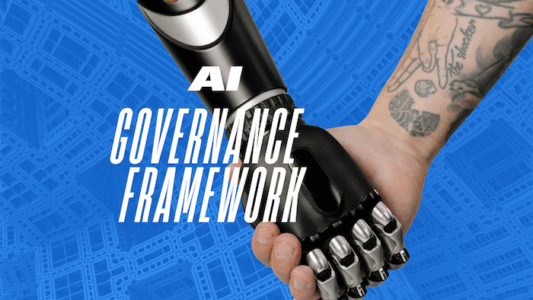In 2013, I led a seminar on crafting Internet and Social Media Policies to protect organizations from reputational and legal risks.
Over a decade later, the landscape has changed — and so have the risks, Today, the new frontier is Artificial Intelligence (AI).
AI tools — from generative chatbots to deepfakes — are already embedded in how people work, whether management has approved them or not.
The challenge for leaders is clear: How do we harness AI responsibly while protecting our organization’s reputation, compliance, and trust?
We need more than just rules. We need an AI Philosophy anchored on values, and an AI Policy to set guardrails.
Using the ASK Framework (Awareness → Strategy → Knowledge), here’s how organizations can prepare.

Awareness: Why AI Philosophy and Policy Matter Now
Philippine Cases in AI Governance
- 🔥 The “Burning Truck” Hoax (2025) — Firefighters in Manila rushed to a scene after seeing an AI-generated photo of a truck on fire. It looked real — but there was no fire. This wasted resources and showed how AI misinformation can mislead even professionals. (GMA News)
- 🏛️ Sandiganbayan AI Pleadings (2025) — A lawyer submitted pleadings partly drafted by AI, filled with fabricated case citations. The court reminded lawyers: AI cannot replace human accountability. (PhilStar)
- 🪖 Defense Department AI Ban (2023): The DND barred soldiers from using AI portrait apps, citing data privacy and national security concerns. (AP News)
Global Cases in Responsible AI Use
- ✈️ Air Canada (2024) — A tribunal ruled the airline was liable after its chatbot gave false refund advice. Lesson: Companies are responsible for their AI outputs. (ABA)
- 📱 Samsung (2023) — Engineers uploaded confidential source code into ChatGPT. The company responded by banning generative AI on work devices. (TechCrunch)
- 📰 CNET (2023) — AI-generated finance articles were found full of factual errors and plagiarism. The brand paused the program and issued corrections. (The Verge)
- 🛒 Fake AI Startup (2025) — A shopping app marketed as “AI-powered” turned out to be human-run. Its founder faces fraud charges. (Cybernews)
Strategy: From Rules to an AI Governance Framework
Creating an AI policy is not just a compliance exercise — it must reflect who you are as an organization. Here are key steps:
- Anchor AI on company values — create an AI philosophy that aligns with your Vision–Mission–Values.
- Co-create policy across functions — HR, IT, Legal, and Communications must collaborate.
- Scenario planning — simulate “AI gone wrong” situations, from fake fire alerts to biased hiring algorithms.
- Educate and empower employees — train staff on responsible AI use and prohibited practices.
- Establish oversight — form an AI Ethics Committee or designate compliance officers.
- Annual review — update AI policies in line with Philippine Data Privacy laws, NPC advisories, and global regulations like the EU AI Act.
This is what I call moving from rules to philosophy: making sure AI use is guided by culture, not just compliance.
Knowledge: Checklist for AI Policy
A practical AI Policy Checklist includes:
- Scope & Definitions
- Permitted vs Prohibited Use
- Data Privacy & NPC Compliance
- Transparency & Disclosure (flagging AI-assisted work)
- Bias, Fairness & Human Oversight
- IP & Content Ownership
- Security & Access Controls
- Crisis & Incident Response
- Disciplinary Measures
- Annual Policy Review
Risks vs Benefits of AI Use
| Domain | Benefits | Risks |
|---|---|---|
| Customer Service | 24/7 support, efficiency | Chatbot errors → liability (Air Canada) |
| Productivity | Faster drafts, summaries | Data leakage via shadow AI (Samsung) |
| Marketing & PR | Scalable content creation | Errors, plagiarism (CNET) |
| HR & Hiring | Automated screening | Algorithmic bias, discrimination |
| Legal | Faster drafting | Fake citations (Sandiganbayan) |
| Public Safety | Faster insights | AI hoaxes waste resources (Burning Truck) |
| Healthcare | Assist diagnostics | Bias, privacy concerns |
| Reputation | Innovator image | Legacy content resurfacing (CBRE) |
Final Thoughts
Back in 2013, I said: “You can block Facebook in the office, but you cannot block the 21st century.” In 2025, the same is true of AI. Banning AI isn’t realistic.
The only way forward is to build an AI Philosophy rooted in values, and an AI Policy with clear guardrails. That’s how we can turn AI into a driver of growth — not a trigger for crisis.
How is your organization preparing for AI governance? Do you already have an AI Philosophy and Policy, or is this still on your to-do list?





